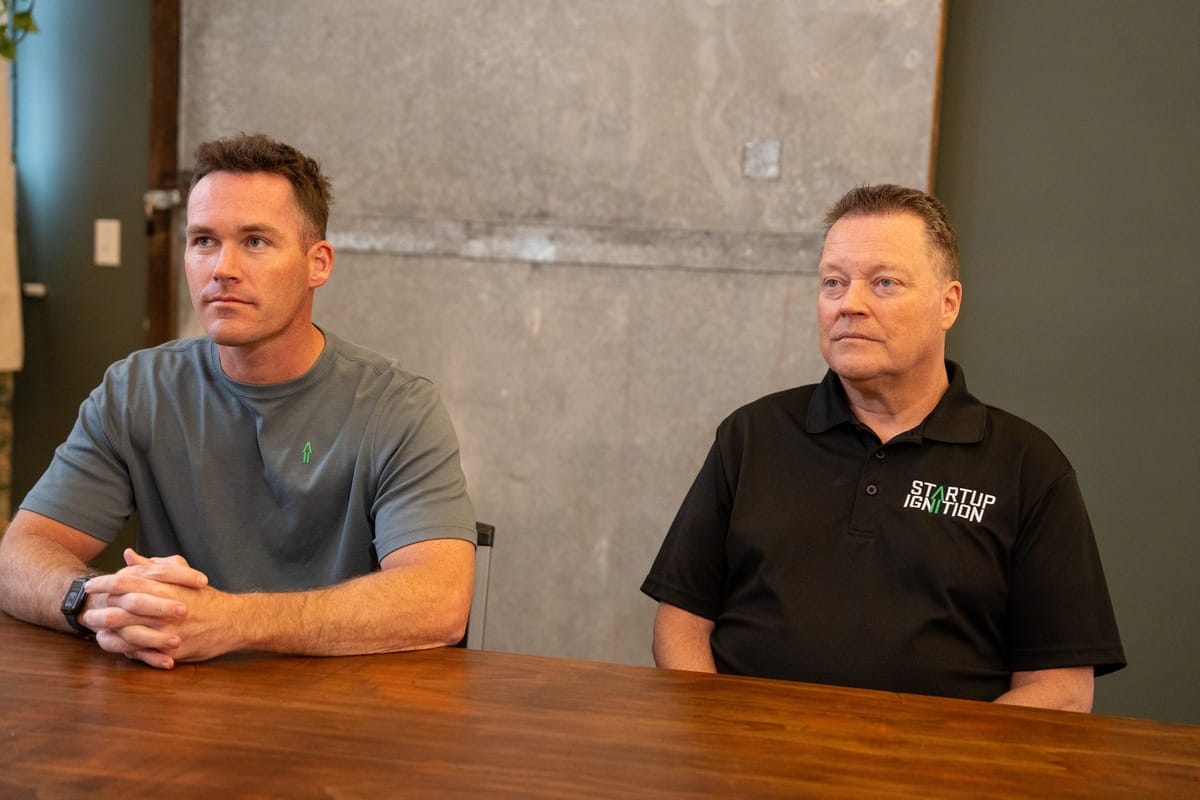Highland, Utah — July 21, 2025
Startup Ignition Ventures (SIV) recently made a $600,000 pre-seed investment in Data Phleet, a Highland, Utah-based startup leveraging AI-driven automation to solve a growing regulatory challenge in the U.S. electric grid. Data Phleet is developing compliance software designed to help utilities meet stringent North American Electric Reliability Corporation (NERC) standards by converting time-consuming manual checks into near-instant automated validations.
Trusted Leadership and Proven Expertise
John Richards, managing partner at SIV, praised Data Phleet’s founder, Ryan Larsen, for his track record and integrity.
“Ryan is exactly the kind of founder we back,” said Richards. “And Data Phleet is solving a real problem in a massive market.”

He continued, “We’ve known Ryan for nearly 20 years. He helped build Central Logic into a market-defining company, and now he’s tackling another complex space — electric grid compliance — with the same clarity of vision and grit. Data Phleet is addressing a real pain point with automation that utilities desperately need, and early customers are already confirming its value. We completed extensive due diligence and spoke with industry experts. We’re convinced this is a strong AI-driven B2B SaaS play. Ryan also completed our Startup Ignition Bootcamp, which sharpened the company’s structure and go-to-market plan, demonstrating his seriousness about doing things right from day one.”
“Our conviction ultimately comes down to the founder,” Richards concluded. “Ryan is honest, whip-smart, works hard, listens well, and builds trust wherever he goes.”
Accelerating Compliance Amid a Grid Transformation
The electric grid is undergoing one of its largest regulatory shifts in decades. Data Phleet is positioned to lead this transformation with its automation platform for power generation, transmission, and distribution producers.
“Power companies are under immense pressure from regulators and stretched thin on engineering resources,” said Larsen. “Our software eliminates most of the manual compliance work by validating systems in seconds rather than hours, enabling engineers to confirm findings quickly and efficiently.”

SIV’s investment arrives at a pivotal moment, as renewable energy sources flood the market and a new class of power generators — designated by NERC as Category 2 inverter-based resources (IBRs) — comes under formal compliance rules. Larsen explained that most of these mid-sized generators “don’t even know how to be compliant yet.”
“There are roughly 1,000 of these category 2 IBR companies becoming subject to NERC compliance,” explained Larsen, “and the compliance standards specific to them are still being finalized. Our platform will be ready before those requirements go live.”
From Manual Headaches to Machine-Led Compliance
Grid compliance has long been dominated by spreadsheets, scheduled checks, and hands-on testing. Larsen calls it a “multi-hour manual process repeated often” for each compliance requirement — and many facilities are subject to dozens if not more.
Data Phleet’s platform automates the most complex, failure-prone compliance checks across both traditional (coal and gas) and renewable infrastructure. “We targeted the most difficult and most commonly failed requirements first — because that’s where the need is greatest,” said Larsen. “These aren’t plug-and-play solutions. Each compliance check is engineered, automated, and tested individually.”
The company is already piloting several of the automated checks, and says early customer response is strong. “We’ve got sales channels lined up; they’re just waiting for us to finish the builds,” he added.
Lean Approach to Headcount
Emerging from stealth mode, Data Phleet is still early-stage by headcount: Larsen and CTO Mike Margetts are the only current full-time employees, with more to follow. The rest of the team — full-stack engineering, DevOps, and industry compliance consultants — are engaged on a contract basis.

This approach is by design. “We’re lean, and we know exactly what we need to build,” said Larsen.
Margetts joined as co-founding CTO in April, a strategic hire encouraged by John Richards. “John said, ‘Ryan, you need a co-founding CTO in place before we can fund this.’ I respected his input — and we got it done.”
Larsen, who in 2005 co-founded Central Logic, a healthcare software company that was strategically acquired by Rubicon Technology Partners (St. Paul, MN) in 2020, brings deep startup and regulatory experience to the energy space. A SaaS-based software company headquartered in Sandy, Utah, Central Logic counted Mercato Partners among its early investors. Some of those relationships are still in play.
Timing the Wave
Data Phleet’s roadmap appears tightly synced with the regulatory curve. NERC’s new compliance standards for Category 2 IBRs are being finalized now and are scheduled to take effect beginning in 2026. When they go live, there will be a rush of renewable grid operators looking for ways to stay compliant.
“Seven of the ten compliance checks we’re automating first are the most failed and most complex — and they apply across conventional and renewables sectors,” said Larsen. “The other three target the renewables classes of power companies, some of which are becoming subject to NERC compliance for the first time. When those rules finalize, the scramble for solutions will begin — and we’ll be ready. We’re not just building software. We’re preparing the grid for its next phase of reliability and security.”
In the meantime, the startup is leaning on its brand identity — including a playful but purposeful name. “We didn’t want people thinking we were a transportation logistics company,” Larsen joked. “So we spelled it ‘Phleet’ with a PH — it stuck.”
Learn more about Data Phleet at dataphleet.com.

Share this article






